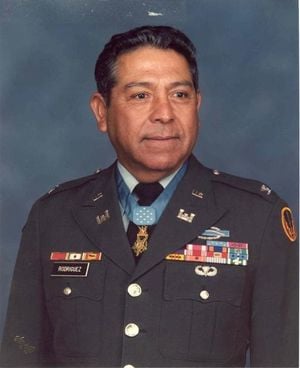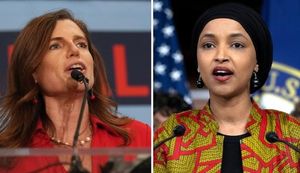Allstate CEO Tom Wilson sparked widespread backlash following the recent tragic terrorist attack in New Orleans just before the Sugar Bowl, as his comments before the game were met with criticism for being tone-deaf and insensitive.
During the annual College Football Playoff event, which was postponed due to the New Year’s Day attack—claimed by the FBI to be potentially linked to ISIS—Wilson made his remarks on January 2, 2025, addressing the audience just moments before kickoff. An attack on Bourbon Street left 15 dead and at least 35 injured, prompting him to express condolences but also criticize societal divisions. “Our prayers went to victims and their families. We also need to be stronger together by overcoming an addiction to divisiveness and negativity,” Wilson stated.
The reaction to Wilson’s remarks was immediate and fierce across social media platforms. Many viewers felt his message was ill-timed and out of touch, with one user stating, “What was Allstate thinking with this statement? I have just canceled my policy and signed up with State Farm.” Others echoed the sentiment, urging individuals to reconsider their support for Allstate due to the perceived insensitivity of Wilson’s comments.
Critics argued Wilson’s decision to divert the conversation to divisiveness rather than directly condemning the act of terrorism was inappropriate. “Cancel your Allstate policies. If they’re this tone-deaf and woke, we don’t need to support them,” another user proclaimed, highlighting the anger radiated among those who expected more from such public figures following acts of violence.
Wilson's statements not only drew criticism from the general public but also from various commentators and political activists. Sean Davis, CEO of The Federalist, suggested it was time to cancel Allstate insurance plans, indicating the depth of dissatisfaction among conservative commentators as well. “This type of corporate liberalism ignores the real issue—terrorism,” remarked OutKick founder Clay Travis, addressing the failure to directly address the nature of the tragedy.
Allstate attempted to mitigate the damage by releasing their own statement clarifying Wilson’s stance. The company expressed firm condemnation of the attack, reaffirming their support for victims and emphasizing their outreach efforts to build community trust and positive social interactions. “To be clear, Allstate CEO Tom Wilson unequivocally condemns this heinous act of terrorism and violence in all forms. We stand with the families of the victims, their loved ones, and the community of New Orleans,” the statement asserted.
Tom Wilson’s remarks were not merely ignored; they penetrated various layers of the public consciousness, stirring debates about the role of corporate messages during crises. Following the attack, respected commentators pointed out the disconnection between corporate rhetoric and genuine leadership, especially when responding to acts of terror. Critics suggest such corporate messaging too often prioritizes political correctness over solidly addressing and denouncing public threats.
Adding to the complexity of the situation, aspects of the perpetrator’s background have raised eyebrows. The suspect, identified as 42-year-old Shamsud-Din Jabbar, reportedly had ties to radical ideologies, prompting former FBI agents to warn of potential radicalization threats. Jabbar’s brother even expressed concern, stating, “What he did does not represent Islam. This is more some type of radicalization, not religion.” This viewpoint adds another layer to the discussion by emphasizing the need for clarity when addressing acts of terror without perpetuating narratives of division.
While the delayed Sugar Bowl game proceeded, the actual event found itself wrapped up not only by the tragic backdrop but also the nuanced reactions from the viewers, fans, and families affected by the violence. Even pregame rituals, such as the National Anthem and moments of silence, which should have been the focal points, fell under scrutiny as coverage cut away, shocking viewers already grappling with the aftermath of the violence.
Final reflections on this situation may lead to discussions around how corporations can manage their public relations without losing sight of empathic accountability during catastrophes. From fan outrage after Wilson’s speech to the need for large brands to re-examine such strategies, it stands with certainty; companies must engage meaningfully, particularly during times of crises.
The Allstate Sugar Bowl, meant to celebrate sportsmanship and competition, now stands as a reminder—a somber collage woven by tragedy, corporate discourse, and social media uproar. A call to rethink corporate messaging is echoed through the channels of civilization intertwined with the sentiments of those deeply affected.



